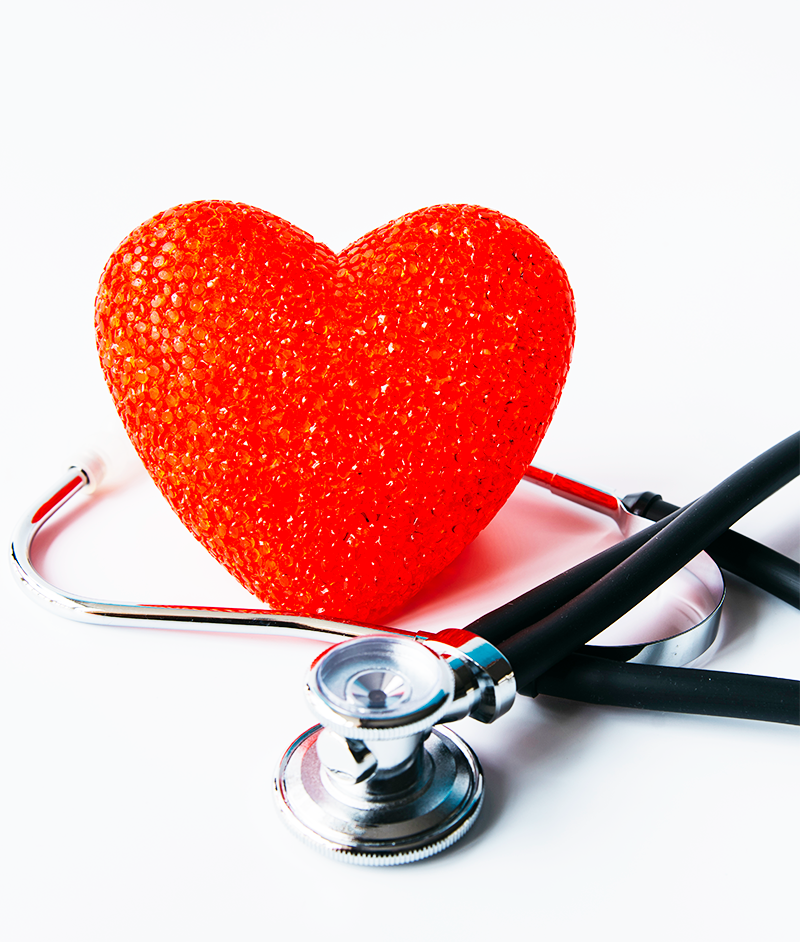Road To Wellness
Heart Health
Cardiovascular disease is a general term used to describe any medical condition that affects the heart and the blood vessels. These conditions are unfortunately a major killer in South Africa, and also in the rest of the world. However, many of our current lifestyle habits lead to these conditions, so we are able to do something about this.
To help you care for your heart, whether you have been diagnosed with a condition or not, here are some useful tips:
1. Quit smoking
According to the Heart Foundation smoking, or using tobacco of any kind, is one of the most significant risk factors for developing heart disease. Chemicals in tobacco can damage your heart and blood vessels, leading to narrowing of the arteries. This can ultimately lead to a heart attack. For many people quitting this habit is tough. Fortunately there are a number of organisations that specialise in offering support. So go online and find an organisation near you.

2. Moderate alcohol consumption
The exact safe amount of alcohol to drink various between different researchers but they all point in the direction of a maximum of one drink a day for women and two for men, with a preference to not drink every day. A drink is defined as a small glass of wine, 350ml bottle of beer, or a regular tot of spirits. Binge drinking is an absolute no-no. As with smoking there are organisations that help people who are drinking too much. Alcoholics Anonymous is the most popular, with branches everywhere.
3. Healthy eating
Food choices are particularly important, and the type of fat that you eat is more significant than the amount you eat. It would be ideal if you could eliminate the bad and ugly fats from your diet and ensure that you eat only good fats every day.
When doing shopping buy ‘fat-free’ or ‘low-fat’ dairy products like yogurt and cottage cheese. Buy chicken breasts with the skin already removed, only buy extra lean mince and choose meat cuts with the minimal amount of fat visible. Try grilling, steaming and dry-frying as an option to normal frying with oil, and then flavour the food once cooked with a little olive oil. Use mashed avocado or hummus instead of margarine or butter as a spread. Avoid processed or pre-prepared food as they often have a high fat content.
Many people are unaware that having high blood sugar levels can affect the heart’s functioning. It is possible to cause damage to your heart by eating High GI foods that lead to blood sugar level spikes, so sticking to Low GI foods is recommended.
4. Exercise
For a heart to be healthy it needs to be exercised, just like any other muscle. If you have any cardiovascular disease, part of your healing will include doing exercise, but the type and amount of exercise needs to be carefully monitored by your doctor. Getting an exercise coach to carry out the doctor’s guidelines would be an advantage.
Use an exercise goal plan to help keep yourself on track, and get an exercise buddy to stay motivated.
5. Managing your mood
You may have heard someone being described as ‘hot-headed’, or an angry person saying that their ‘blood is boiling’. In a way this is a real description of what is happening in a person’s body when they experience anger or hostility. Frequent experiences of these emotions can raise the risk of heart disease significantly.
If you seem to frequently experience high levels of anger, irritability, or even rage, you may be putting yourself at risk of heart disease. The key here is ‘high’ levels. Moderate anger may not be the problem, according to Dr. Laura Kubzansky, associate professor at the Harvard School of Public Health in Cambridge, USA. In fact, she states that expressing anger in reasonable ways can be healthy. “Being able to tell people that you’re angry can be extremely functional,” she said. But explosive people who hurl objects or scream at others may be at greater risk for heart disease, as well as those who harbour suppressed rage. “Either end of the continuum is problematic.”
If you are one of these ‘hotheads’, it may be useful for you to focus on the practice of a simple relaxation exercise, such as focussed breathing, meditation, yoga and even soothing affirmations.
Sources:
- heartfoundation.co.za/topical-articles/commit-quit
- http://www.world-heart-federation.org/about-us/
- http://www.health-e.org.za/2014/04/07/heart-disease-stroke-rise-warns-report/
Recommendations:
- Eat plenty of raw foods.
- For protein, eat broiled fish and skinless turkey and chicken, which are low in fat.
- Include garlic and onions in your diet as they contain compounds that help to reduce serum cholesterol levels.
- Eat plenty of fresh fruits and vegetables. An eight-year study of almost 4 0000 men found that men who ate five or more servings of fruits and vegetables each day, had a 39% lower risk of stroke than those who did not.
- Add raw nuts (except peanuts), olive oil, pink salmon, trout, tuna, Atlantic herring, and mackerel to your diet. These foods contain essential fatty acids.
- Do not consume stimulants, such as coffee and black tea, that contain caffeine. Studies show that coffee increases stress hormones in the body, putting coffee drinkers at greater risk of heart disease.
- Avoid tobacco, alcohol, chocolate, sugar, butter, red meat, fats (particularly animal fats and hydrogenated oils), fried foods, processed and refined foods, soft drinks, spicy foods, and white flour products, such as white bread.
- Keep your weight down. Obesity is a risk factor for heart attacks and high blood pressure.
- Engage in regular, moderate exercise.
- Control high blood pressure, either with drugs or lifestyle changes (or a combination of the two), to prevent, or at least delay, dangerous complications.
- According to some studies, magnesium supplementation can correct some types of irregular heartbeat, and could save the lives of many people with heart trouble.
Bibliography:
Balch, P. A. (2000). Prescription for nutritional healing, A Practical A-to-Z Reference to Drug-Free Remedies Using Vitamins, Minerals, Herbs & Food Supplements (3rd Ed.), Penguin. Pg. 271-274.


